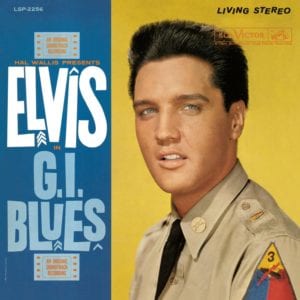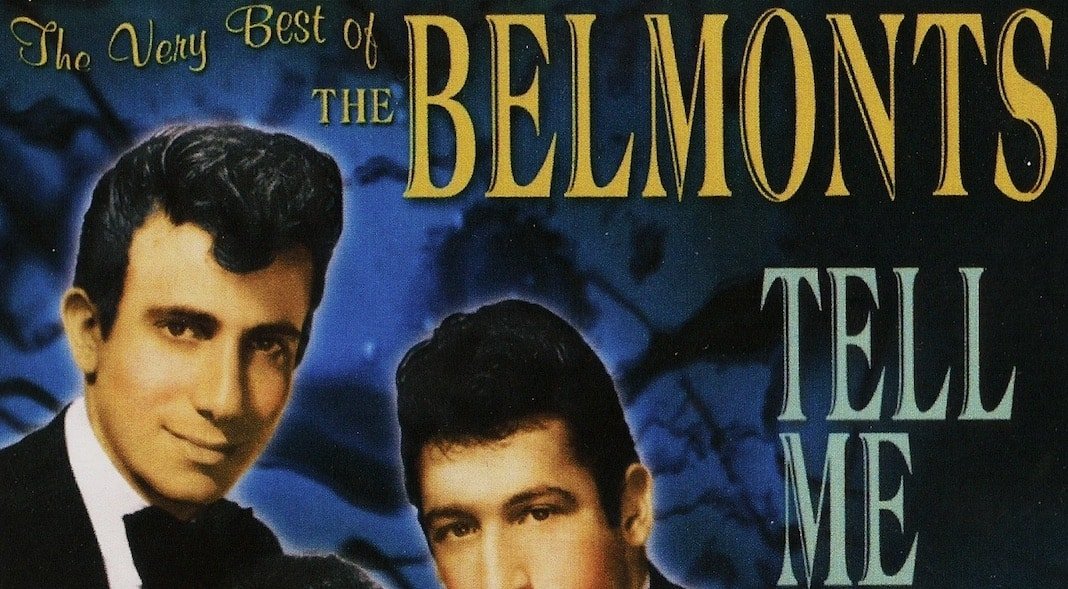The Copyright Extension That Isn’t
Sometimes an extension isn't an extension...
 If you’ve been reading copyright news online, you’ve likely read several pieces about Congress’ intent to once again extend copyright.
If you’ve been reading copyright news online, you’ve likely read several pieces about Congress’ intent to once again extend copyright.
The language sounds scary enough, talking about “new rights” being granted and a “144 year term” for some works. It’s understandable that anyone who is in favor of a balanced copyright system might be wary.
However, when you take a look at what the bill is trying to do, two things become clear. First is that it is not an extension. The copyright expiration dates in the bill have been a part of the law since 1998. Second, the rights being “granted” have already been effectively won in state courts (even if there is an open legal issue).
The CLASSICS Act, as it is known, is trying to clean up the mess that is pre-1972 sound recordings. While the bill may be far from perfect, it’s still better than the current system and that holds true for both artists and those who seek use or license their work.
The Basics of the CLASSICS Act
 In July of last year, I wrote a lengthy piece explaining the CLASSICS Act, which has now been folded into the larger Music Modernization Act. Back in April the Music Modernization Act unanimously passed the House of Representatives and is expected to be taken up by the Senate.
In July of last year, I wrote a lengthy piece explaining the CLASSICS Act, which has now been folded into the larger Music Modernization Act. Back in April the Music Modernization Act unanimously passed the House of Representatives and is expected to be taken up by the Senate.
The goal of the CLASSICS Act is to address some of the issues with pre-1972 sound recordings. Basically, since the Copyright Act of 1909 (not a typo) did not directly protect sound recordings, their protection was a matter of state common law rather than federal law.
In 1971 Congress passed the Sound Recording Act, which placed all sound recordings made after February 15, 1972 under federal jurisdiction. It did not, however, federalize pre-1972 sound recordings and they have languished there. The law originally said that they would become federalized in 2047 and subsequently become public domain. However, in 1998 with the Sonny Bono Copyright Term Extension Act, that date was extended to 2067 (this date is important).
Having a large number of recordings under state common law may not seem like a large deal, but as Congress passed more and more copyright laws, the issue compounded. Two in particular were the Digital Performance Right in Sound Recordings Act of 1995, which granted sound recordings a limited public performance right when they are streamed digitally, and the Digital Millennium Copyright Act of 1998, which protected hosts when users uploaded infringing material by creating a notice and takedown system.
How these laws applied to pre-1972 sound recordings was (and is) unclear. This resulted in some pretty significant litigation including Grooveshark’s battle in New York State Court over its streaming of pre-1972 tracks as well as SiriusXM settling for $210 million over its use of pre-1972 sound recordings.
The CLASSICS Act aims to smooth these rough edges out by making two key changes to pre-1972 sound recordings:
- Digital Transmission Rights: The CLASSICS Act would grant pre-1972 sound recordings with the same rights as newer recordings when it comes to digital transmission. It would create a compulsory license for such streaming and set up an agency to handle the distribution of such royalties.
- Safe Harbors: The CLASSICS Act would make it clear that DMCA (as well as Section 230) safe harbors apply to pre-1972 sound recordings.
So, why is this law controversial? Critics of the law generally point to a handful of criticisms that we can take a look at.
Criticism of the Law
 Most of the recent articles about the bill have stemmed either directly or indirectly from a letter distributed by Public Knowledge that was signed by 42 intellectual property scholars.
Most of the recent articles about the bill have stemmed either directly or indirectly from a letter distributed by Public Knowledge that was signed by 42 intellectual property scholars.
The letter outlines a series of criticisms of the bill, they key of which are as follows:
- It Creates a New Federal Protections: They object that the act creates new Federal protections for older works, meaning that it can’t incentivize the creation of new works. It does this while exempting the works from other limitations found in federal law.
- It Has a Lengthy Term: It grants that aforementioned right until 2067, which for the earliest works represents a 144 year term. According to the letter, this means some works may get longer digital transmission protection than their term.
- It Causes Disharmony: The terms of protection will vary wildly and it creates inconsistency between the United States and EU.
I encourage you to read the full letter as this is just a quick synopsis. However, these are the three overarching complaints.
The problem with these complaints is that, on scrutiny, they are either exaggerations or are simply incorrect, especially when one looks at the likely practical impacts of the law.
The Copyright Extension That Isn’t
Note: Terry Hart at CopyHype did a great debunking of these issues earlier in the month. Definitely read his write up if you are interested in this subject.
The easiest of the concerns to address is that the CLASSICS Act is a copyright term extension. It isn’t. The bill changes nothing with the term of the rights.
While it is true that pre-1972 sound recordings won’t lapse into the public domain until 2067 and that 2067-1923 (the earliest year still under copyright) is 144, this is not a new provision.
As we stated above, the original “drop dead” date for protection was 2047 and it was extended to 2067 in 1998. In short, the 2067 date has been in the law for 20 years.
The Library of Congress noted this in 2009 when it performed a study on the protection of pre-1972 sound recordings and the impact it has on non-profits. The study found that there are “virtually no public domain sound recordings”. Further, the study found that, due to the date of expiration and that so few pre-1925 sound recordings are commercially available, “96 percent of pre-1925 commercial recordings are inaccessible commercially and may not be published, sold, or offered for downloading legally until 2067.”
In short, no matter how you feel about the 2067 date and its impact, it’s not part of the CLASSICS Act and has been a part of the law for 20 years. This is also the crux of the synchronization issue with the EU argument. The CLASSICS Act doesn’t fix it, but doesn’t create it either.
This brings us to the issue of the law creating a new federal right. Here, the issue is more murky.
The bill would grant pre-1972 sound recordings the same limited digital transmission public performance right as later songs. However, it’s unclear if they have that right now. This is very much an open question. California is deciding the case though rightsholders secured some significant wins there. New York and Florida have both said no.
However, there are still more than 45 other states and this creates both a legal mess and a great deal of uncertainty.
Digital platforms aren’t waiting. SiriusXM settled a class action lawsuit over pre-1972 sound recordings for a minimum of $25 million, a separate lawsuit filed by the record labels for $210 million and Pandora settled with the labels for $90 million.
Between hundreds of millions of dollars in settlements and other lawsuits ongoing, even if California declines to recognize a public performance right, the situation for both sides is untenable. Streaming services can face costly litigation in state after state, or they can settle and pay a royalty. More and more are opting for the latter.
In short, it’s very likely that pre-1972 sound recordings already have a public performance right, at least in some states, and that would mean that all the CLASSICS Act is doing is federalizing that right, creating a compulsory license and crafting a streamlined process for paying royalties.
But, even if they don’t have that right, it’s going to require massive amounts of litigation to prove it, litigation smaller users can’t afford. Given that we’ve already seen major players shell out hundreds of millions to pay for pre-1972 sound recordings, it’s pretty clear that, even if such a right doesn’t exist, few are willing and able to face the litigation to prove it.
Because of that, many are happy to shell out royalties without waiting on the final word.
Bottom Line
In the end, there are legitimate disagreements to be had about the term of copyright and what it should protect. But this isn’t one of them.
Pre-1972 sound recordings are low-hanging fruit, a thorn that everyone (more or less) agrees needs to be addressed. While many, such as myself, would prefer full federalization that’s not practical without drastic changes to current law.
The CLASSICS Act, as imperfect as it is, at least addresses two major pain points, both of which have been the subject of litigation.
Unfortunately, the real solution to our pre-1972 sound recording mess is to invent a time machine and tell the authors of Copyright Act of 1909 to include sound recordings. Barring that, the CLASSICS Act is the best solution we’re likely to get for some time.
It’s not an extension and it most likely isn’t a new right, but it may bring a lot of much-needed certainty to a very uncertain area of copyright law.
Want to Reuse or Republish this Content?
If you want to feature this article in your site, classroom or elsewhere, just let us know! We usually grant permission within 24 hours.
